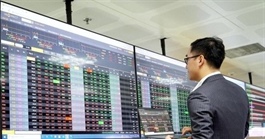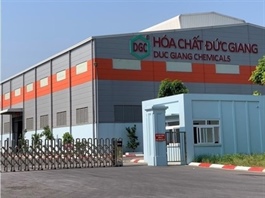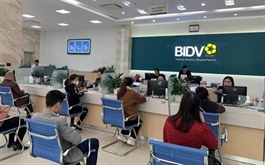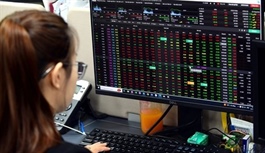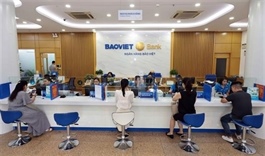HoSE adds GIL and HID to margin-cut stock list
HoSE adds GIL and HID to margin-cut stock list
The Hồ Chí Minh Stock Exchange (HoSE) has recently updated its list of securities ineligible for margin trading, adding GIL of Gilimex and HID of Halcom Vietnam.

Investors at a trading floor of a securities company in Hà Nội. — VNA/VNS Photo |
HoSE said that Halcom Vietnam was removed from the margin list due to its biennial financial report for 2024 revealing a net loss of VNĐ16.9 billion (US$665,092), an increase of VNĐ622 million from last year.
This loss was primarily attributed to significant revenue in the previous period from selling shares of VKT - Hòa An Solar Plant JSC.
Additionally, in the current period, Halcom subsidiary Central Wind JSC had to adjust financial revenue due to exchange rate differences on loans payable in foreign currency.
On the other hand, Gilimex's margin was cut due to tax law violations.
On November 27, the company received an administrative penalty decision from the HCM City Tax Department regarding tax irregularities from 2019 to 2022 totalling over VNĐ3.6 billion.
Gilimex stated it settled this financial obligation by November 26.
As of early December, the list of stocks ineligible for margin trading on HoSE has increased to 86, including 81 stocks and five fund certificates.
Common reasons for margin cuts include negative profits after tax, and stocks under warning, control or trading restrictions.
Some stocks, like SRF of Searefico Corproration, DRH of DRH Holdings, ITA of ITACO and LEC of Central Power Real Estate JSC, even face trading suspensions.
Newly listed stocks under six months or violating regulations of information disclosure are also included.
Notably, public investment funds like FUCVREIT, FUEIP100 and FUEKIV30 remain ineligible for margin due to their net asset value per unit being lower than the face value for three consecutive months.
HoSE's continual expansion of the list reflects the increasing demand for financial transparency and stability among listed companies.
This signals a need for investors to carefully consider transactions and serves as a reminder for businesses to enhance operational efficiency and comply with regulations.












